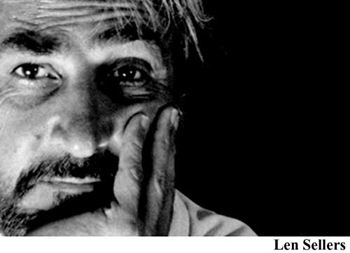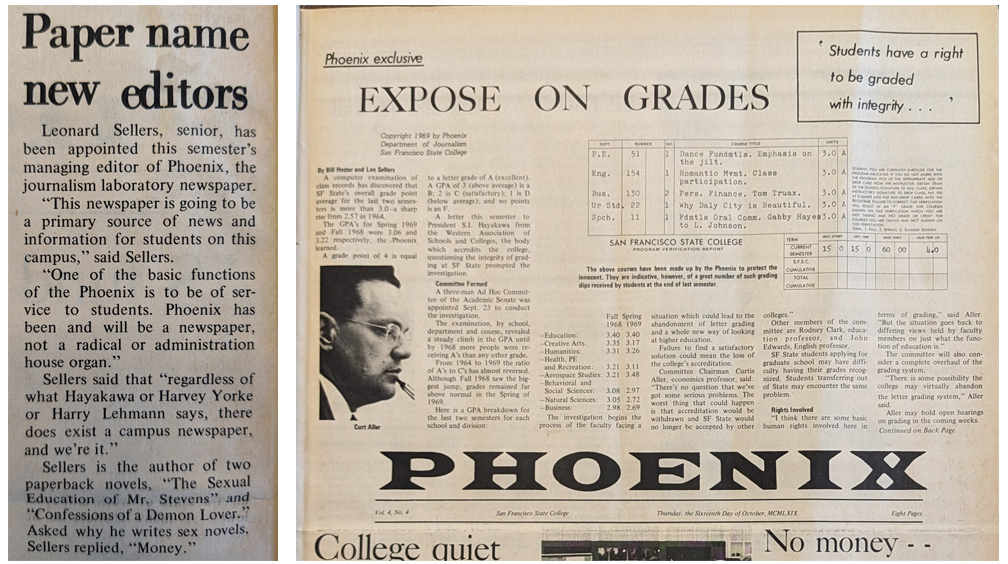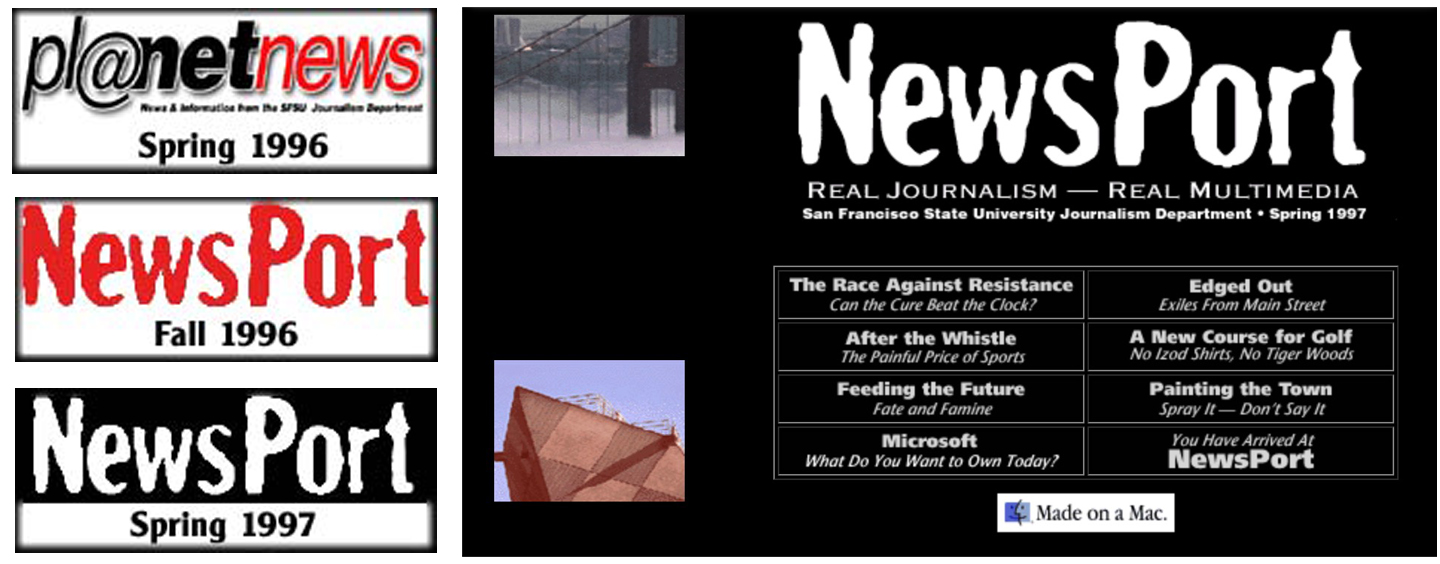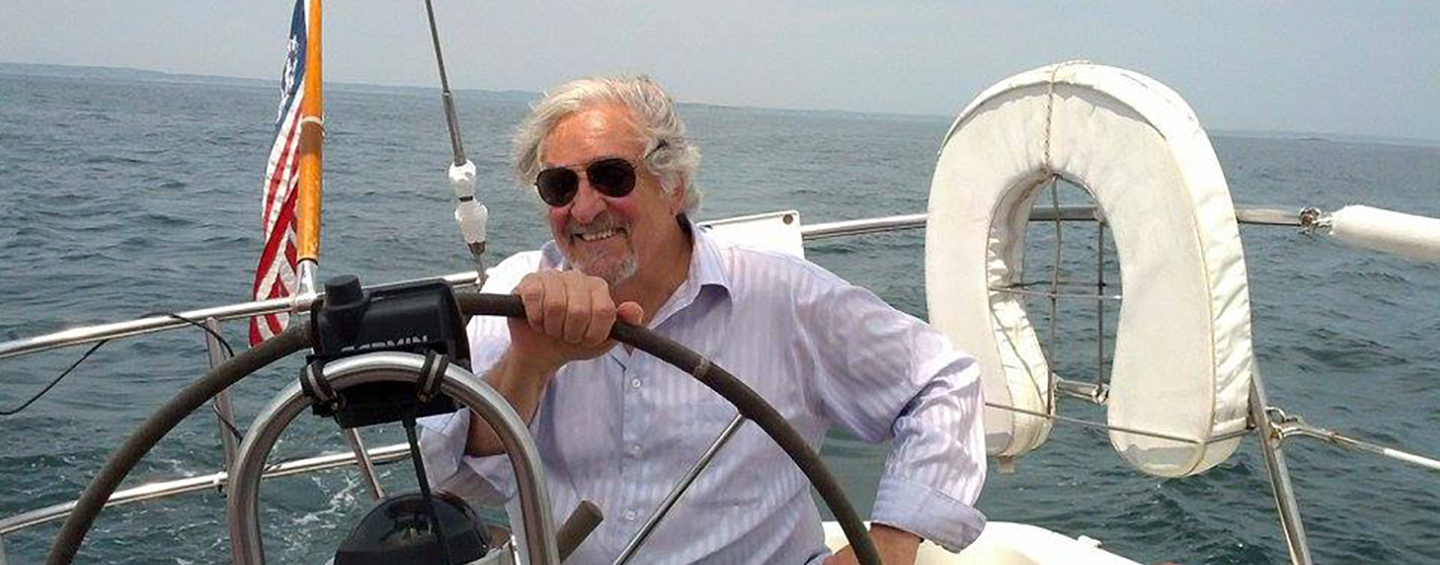Len Sellers' 'parting words'

Setting: SF State Journalism Graduation Celebration, Little Theater, Creative Arts Building, Friday, May 25, 2001
I was asked to speak today because I've just retired after 25 years of teaching at the university. You must understand that this doesn't assume accumulated wisdom on my part, only that after doing a thing for so long, there's a hope that something of value may have stuck.
So I've been asked to reflect on what's happened in journalism in the past quarter century, and because of my involvement in New Media, perhaps take some guesses about what is coming next.
This won't take very long, because the lessons to be drawn from the past, and perhaps used as a projection of the future, are really very simple ones.
But first, let me separate journalism and students of journalism. People who chose to become journalism majors are a special breed, and I can honestly reach that conclusion after several decades of watching undergraduates, seeing them move into careers, and in having the good fortune to have some become life-long friends.
Journalism students have several characteristics that make them special:
'Better Looking Than Business Majors'
- They care. That is, they're afflicted with a sense of moral outrage, they get mad when people do bad things, and they want to make a difference.
- They have passion for understanding. They want to ask questions and learn, and figure out how things really work.
- They're definitely better looking than business majors.
As for the field of journalism itself, the lesson to be drawn from the past is that the important things don't change. The importance of the First Amendment in keeping the press free and unfettered; the role of the press in our society in providing the information necessary for a democracy to function; the importance of bringing issues to the public agenda — these things haven't changed in more than two centuries.
There is also the cyclical nature of the watchdog role of the press, which follows the seemingly predictable pattern of political corruption, corporate abuses, nursing home scandals and other on-going forms of mis-, mal- and non-feasance. These things keep happening, and there won't be a magic day when evil just stops.
It is the unchanging job of the press to point to those places where the fabric of society is unraveling--because only then can the people take the necessary steps to begin the repairs. This is what journalists must always do.
On a less lofty note, what also does not change is the constant struggle between journalism and business. You will note that at publishers' conventions, it is referred to as "the newspaper industry," which for me creates the image of smokestacks and dark clouds. But regardless of what they're called, media are businesses, and that's how it has to be.
'A Nation Talking To Itself'
The journalistic aspect of media is presumed to be different, in that it has a key role in a democratic society. To quote Arthur Miller about the print media, "A great newspaper is a nation talking to itself." What this means is that society must have a dialogue, a discussion, about who we are, what we want to be, where we are going. And the substance of this conversation is found in the press, and sometimes only the press, which is our source of information, our platform for debate, our national conscience.
So it isn't just commerce, and ultimately it's not about business. As a social scientist would say, business is a condition necessary, but not sufficient.
There is an unending conflict between Church and State, between editorial and advertising, between the news and the business aspects of journalism. It's a battle that never stops, which is never won, which you engage in, time and again, throughout your careers.
And thoughts about your careers segue to thoughts about the future. The future will be defined by evolving technologies, the shift and convergence of media, which in turn will determine new channels and platforms and devices. As content, along with everything else, becomes digital, it will empower the end-user--someone who can no longer be called just a "reader" or "viewer"--and people will be able to select information in the form they want, when they want it, on the device they wish.
Already the majority of young people are getting the majority of their news via the Internet, and that can only increase as the desk top, what we think of today as "computers," becomes increasingly irrelevant to delivery systems.
Currently the Web blurs the line between Church and State: Many sites pretend to be informational, but are actually fronts for corporate marketing arms. There are health sites, for example, which never tell you they are paid for by pharmaceutical companies. These are called "stealth sites," and their number is increasing.
What Is Advertising? What Is Editorial?
There are newspaper Web sites that tie together content and advertisers in ways that don't make clear to the readers which is which. And as the Net pushes into the wireless space--phones and Palms and on-board car computers--and expands into what they're calling the Smart Home, with portable flat-panel screens and information appliances that talk to each other--the battle is going to get really messy. What is news and what is marketing? What is self-interested and what is objective? What is advertising and what is editorial and what is this awful thing called advertorials?
Within news organizations, information gathering and distribution will be increasingly multimedia. Whether the stories appear in print, on your desktop, on the TV screen, or on any other device, will only be a matter of packaging.
I consulted to the South China Morning Post last summer, where we folded the staff of the on-line version of the newspaper into the print newsroom. They also set up two small TV studios in the newsroom. The logic was simple: They had the stories in digital format; all related assets, graphics, photos, video, audio, whatever, could also be digital. So they have this enormous database, changing every day, which could be tapped into and sent out in any format. It doesn't matter, because it's all ones and zeros. It's just sending it down different pipes to different devices. The South China Morning Post is changing itself from a newspaper to a "news system."
Tools Necessary To Deal With The Future
It is wonderful to see that at San Francisco State, the journalism department is already there, having combined its newspaper, magazine and on-line site into a single news organization. Once again this department is ahead of the curve, and trying to provide its students with the tools necessary to deal with the future.
What this means for the graduating journalist is that, sooner or later, you're going to have to think in terms of multimedia. You're going to have to deal with the many ways of delivering a story, and you are going to have to think about both the possibilities and the limitations, and what that means to the end-user. The nice, neat divisions of reporter, photographer, broadcaster, may last for a while more, but the lines will begin to blur, and you, as the news gatherer and story teller, will have to be ready for it.
The rate of technological change continues to be exponential. The economy may have slowed, but the rate of tech evolution hasn't. Moore's Law still holds. The future will not only be upon us quickly, in some ways it's already here.
When I started teaching here the journalism labs had typewriters, and the student newspaper way put together with an IBM Compositwriter. Then we upgraded to IBM Selectric typewriters, which, given the cost, was truly a big deal. The difference between then and now is almost incomprehensible for those who didn't live through it. The point is, the amount of change between then and now will come in half the time, if Moore's Law remains true.
What that means for you is that change will be a constant, it will become a theme of your professional lives. Yet I would suggest that you take a deep breath and not worry about the technologies--it will ultimately just be new ways of telling the stories. The important things--fairness and accuracy, helping set the public agenda, the role you will play in our democracy--those will not change, and your sense of responsibility and your ethical standards will always be the lights that will guide you.
I envy you your new beginning. I think there is a wonderful, fascinating future out there. It's yours to take hold of. I wish you luck.
This material originally appeared in the 2001 edition of Slug! Magazine, produced by the Journalism Department at San Francisco State University.




